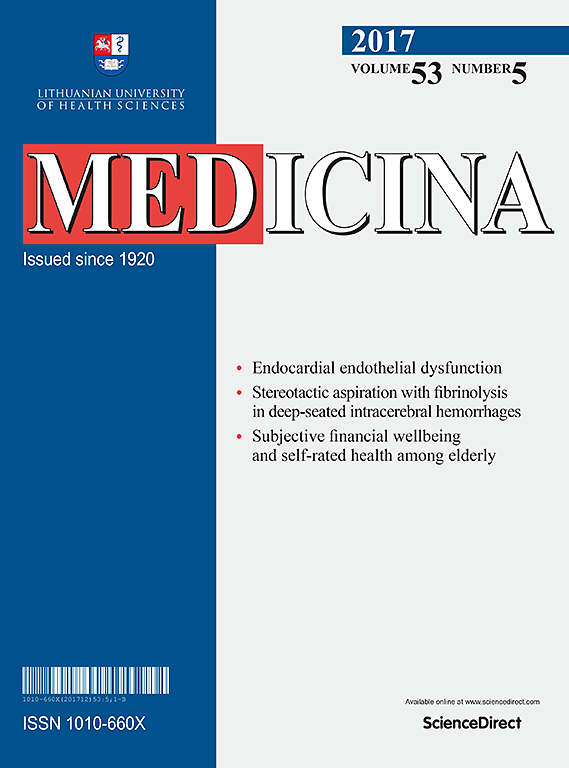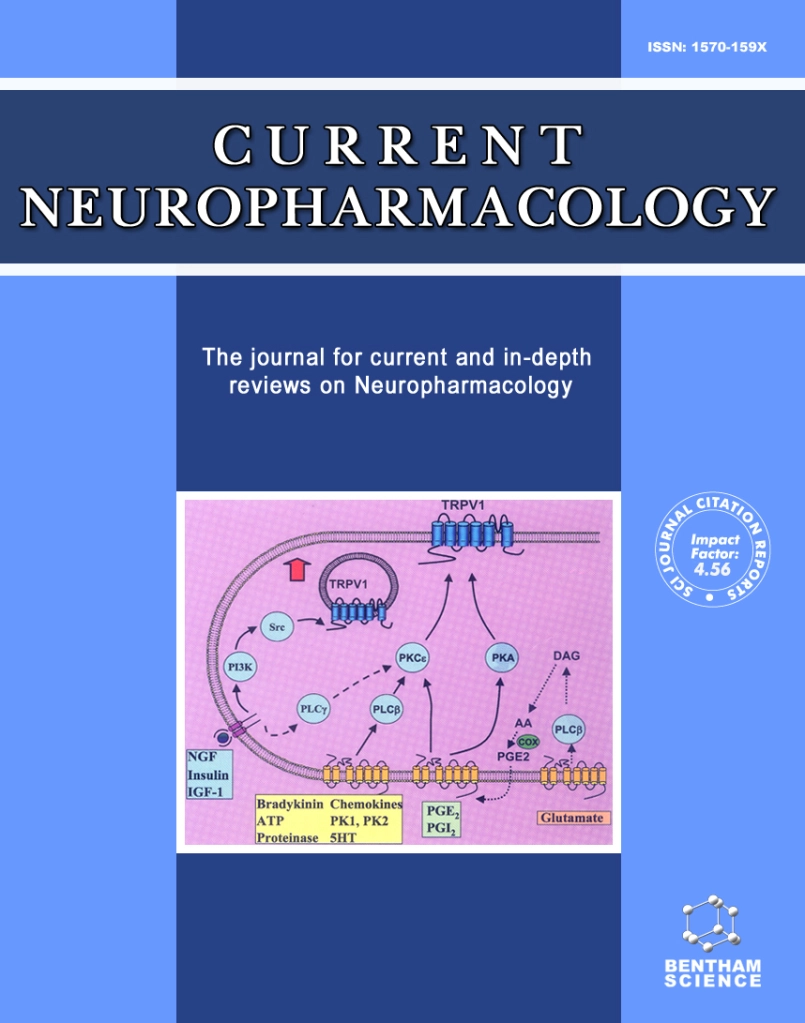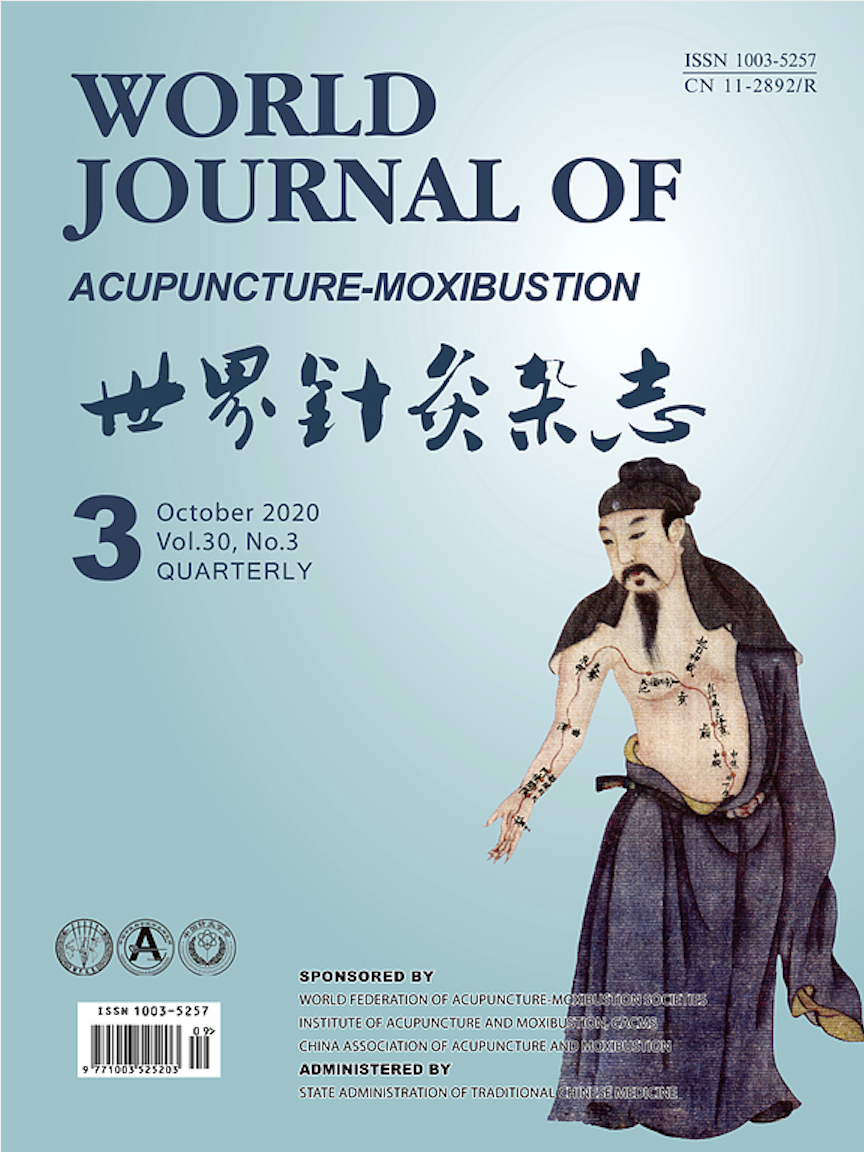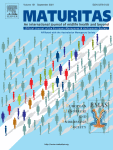Post-Stroke Depression
How to submit an article:
- Registered users can submit any published journal article that has a unique DOI (Digital Object Identifier) name or link to Research Hub.
- For example, you can paste the full DOI link:
https://doi.org/10.1109/5.771073or just the DOI name:10.1109/5.771073into the field above and click submit. - The person who is first to submit a valid article to Research Hub will forever be credited for it, and every article submission earns you +6 Research Points.
Published research studies are articles that present the findings of original research that has undergone a peer-review process and has been made publicly available in scholarly journals, books or other media.

A Chinese Classical Prescription Chaihu Shugan Powder in Treatment of Post-Stroke Depression: An Overview
2022 Dec 27 Medicina Gao Z, Wang Y, Yu H
Review Article Experimental Study Stroke Depression Chai Hu Shu Gan SanChaihu Shugan powder, a traditional Chinese medicine, presents potential advantages in treating post-stroke depression, showing potential as an alternative to conventional antidepressants.

Potential Mechanisms and Clinical Effectiveness of Acupuncture in Depression
2022 Apr Current Neuropharmacology Yang NN, Lin LL, Li YJ, Li HP, Cao Y, Tan CX, et al.
Review Article Brain Inflammation Chronic Pain-Related Depression Post-Stroke DepressionAcupuncture could help manage different types of depression by increasing neuroplasticity, decreasing brain inflammation, and reducing side effects of conventional antidepressant treatment.

Does acupuncture combined with antidepressants have a better therapeutic effect on post-stroke depression? A systematic review and meta-analysis
2020 Dec 17 Acupuncture in Medicine Kun Zhang, Guangwei Cui, Yuan Gao, Weidong Shen
Systematic Review Meta-Analysis Stroke RehabilitationAcupuncture combined with antidepressants showed a more favourable effect on the treatment of post-stroke depression than antidepressants alone.

The effectiveness of acupuncture therapy in patients with post-stroke depression
2019 May Medicine Zhang, X.-Y., Li, Y.-X., Liu, D.-L., et al.
This meta-analysis provides evidence supporting the viewpoint that acupuncture is an effective and safe treatment for post-stroke depression (PSD). Subgroup analyses further revealed that acupuncture alone resulted in better outcomes than drug therapy in improving depressive symptoms. Further high-quality trials are needed to systematically evaluate the effectiveness of acupuncture for PSD and develop standardized acupuncture protocols.
Meta-Analysis Stroke Rehabilitation Depression Post-Stroke Depression
Evaluation of the curative effect of acupuncture manipulation of regulating governor vessel and unblocking brain on the patients with post stroke depression associated with anxiety
2018 Mar World Journal of Acupuncture-Moxibustion WANG Y, HAN Y, HU Y, ZHANG L
Acupuncture manipulation of regulating the governor vessel and unblocking brain demonstrated superior effects on anxiety state and motor function in post-stroke depression patients compared to escitalopram, with rapid onset for depression improvement and equivalent long-term efficacy, while both methods were equally effective in improving activities of daily living.
Randomised Controlled Trial Acupuncture Anxiety Post-Stroke DepressionResearch insights are moderated by the Research Hub team and offer an at-a-glance overview of interesting research findings.

2022 Medicina
Chaihu Shugan powder, a traditional Chinese medicine, presents potential advantages in treating post-stroke depression, showing potential as an alternative to conventional antidepressants.
Review Article Chai Hu Shu Gan San Depression Stroke
A Chinese Classical Prescription Chaihu Shugan Powder in Treatment of Post-Stroke Depression: An Overview
Gao Z, Wang Y, Yu H

2022 Current Neuropharmacology
Acupuncture could help manage different types of depression by increasing neuroplasticity, decreasing brain inflammation, and reducing side effects of conventional antidepressant treatment.
Review Article Brain Inflammation Chronic Pain-Related Depression
Potential Mechanisms and Clinical Effectiveness of Acupuncture in
Depression
Yang NN, Lin LL, Li YJ, Li HP, Cao Y, Tan CX, et al.

2020 Acupuncture in Medicine
Acupuncture combined with antidepressants showed a more favourable effect on the treatment of post-stroke depression than antidepressants alone.
Systematic Review Stroke Rehabilitation
Does acupuncture combined with antidepressants have a better therapeutic effect on post-stroke depression? A systematic review and meta-analysis
Kun Zhang, Guangwei Cui, Yuan Gao, Weidong Shen

2018 BMC Complementary Medicine and Therapies
Chai Hu Shu Gan San (a traditional Chinese Medicine) is a promising in treating depression, especially in post-stroke and postpartum cases.
Systematic Review Chai Hu Shu Gan San Postpartum Depression
Treatment of depression with Chai Hu Shu Gan San: a systematic review and meta-analysis of 42 randomized controlled trials
Sun Y, Xu X, Zhang J, Chen Y
Review Articles
Review articles summarise and critically evaluate the current state of research on a specific topic or field by synthesising multiple primary research studies.

A Chinese Classical Prescription Chaihu Shugan Powder in Treatment of Post-Stroke Depression: An Overview
2022 Dec 27 Medicina Gao Z, Wang Y, Yu H
Review Article Experimental Study Stroke Depression Chai Hu Shu Gan SanChaihu Shugan powder, a traditional Chinese medicine, presents potential advantages in treating post-stroke depression, showing potential as an alternative to conventional antidepressants.

Potential Mechanisms and Clinical Effectiveness of Acupuncture in Depression
2022 Apr Current Neuropharmacology Yang NN, Lin LL, Li YJ, Li HP, Cao Y, Tan CX, et al.
Review Article Brain Inflammation Chronic Pain-Related Depression Post-Stroke DepressionAcupuncture could help manage different types of depression by increasing neuroplasticity, decreasing brain inflammation, and reducing side effects of conventional antidepressant treatment.

Does acupuncture combined with antidepressants have a better therapeutic effect on post-stroke depression? A systematic review and meta-analysis
2020 Dec 17 Acupuncture in Medicine Kun Zhang, Guangwei Cui, Yuan Gao, Weidong Shen
Systematic Review Meta-Analysis Stroke RehabilitationAcupuncture combined with antidepressants showed a more favourable effect on the treatment of post-stroke depression than antidepressants alone.

Treatment of depression with Chai Hu Shu Gan San: a systematic review and meta-analysis of 42 randomized controlled trials
2018 Feb 17 BMC Complementary Medicine and Therapies Sun Y, Xu X, Zhang J, Chen Y
Systematic Review Meta-Analysis Chai Hu Shu Gan San Postpartum Depression Post-Stroke DepressionChai Hu Shu Gan San (a traditional Chinese Medicine) is a promising in treating depression, especially in post-stroke and postpartum cases.

Herbal medicine (Gan Mai Da Zao decoction) for depression: A systematic review and meta-analysis of randomized controlled trials
2014 Dec Maturitas Jun JH, Choi TY, Lee JA, Yun KJ, Lee MS
In summary, our systematic review and meta-analysis failed to provide evidence of the superiority of GMDZ decoction over anti-depressant therapies for major depression, post-surgical depression, or depression in the elderly, although there was evidence of an effect in post-stroke depression.
Systematic Review Meta-Analysis Gan Mai Da Zao TangClinical Trials
Clinical trials are research studies that involve people and are conducted to evaluate the safety and efficacy of new treatments or interventions, such as drugs, medical devices, or behavioural therapies.
Study Protocols
Published study protocols are detailed plans that outline the objectives, methodology, statistical analyses, and organisation of a research study that have been made publicly available for others to review and use as a reference.
Presentation Slides

Review Article
Chaihu Shugan powder, a traditional Chinese medicine, presents potential advantages in treating post-stroke depression, showing potential as an alternative to conventional antidepressants.
Gao Z, Wang Y, Yu H

Review Article
Acupuncture could help manage different types of depression by increasing neuroplasticity, decreasing brain inflammation, and reducing side effects of conventional antidepressant treatment.
Yang NN, Lin LL, Li YJ, Li HP, Cao Y, Tan CX, Hao XW, Ma SM, Wang L, Liu CZ

Systematic Review
Acupuncture combined with antidepressants showed a more favourable effect on the treatment of post-stroke depression than antidepressants alone.
Kun Zhang, Guangwei Cui, Yuan Gao, Weidong Shen

Systematic Review
Chai Hu Shu Gan San (a traditional Chinese Medicine) is a promising in treating depression, especially in post-stroke and postpartum cases.
Sun Y, Xu X, Zhang J, Chen Y
Executive Summary
Write an executive summary in the form of a blog article on the topic of "Research into Chinese medicine treatment for Post-Stroke Depression" summarising the research below and using language that can be easily understood by patients and avoiding medical jargon using a professional and caring tone of voice.
Write an executive summary in the form of a blog article on the topic of "Researched Chinese medicine treatments for Post-Stroke Depression" summarising the research below in an objective and easy to understand way, and using language that can be easily understood by patients. Group the article into Chinese medicine treatments first, followed by nutrition and other treatments. Avoid using medical jargon and use a professional and caring tone of voice.
Write me a concise but easy to understand executive summary on the topic of "Chinese medicine treatments for Post-Stroke Depression" based on the following research that I will give you. Your summary should be 2 paragraphs long in Australian English spelling and include references to the studies.
A Review Article published in 2022 in the journal Medicina found that Chaihu Shugan powder, a traditional Chinese medicine, presents potential advantages in treating post-stroke depression, showing potential as an alternative to conventional antidepressants. The research approach merges both clinical and experimental studies in exploring the effectiveness of Chaihu Shugan powder, a classic traditional Chinese medicine formula, in treating post-stroke depression. Starting from current clinical cases, the study thoroughly investigates the mechanisms of action and drug and chemical effects of this treatment. The attention is given to the performance of Chaihu Shuan powder in counteracting post-stroke depression, focusing on patients who have not shown an adequate response or experienced adverse reactions to commonly used antidepressants like selective serotonin reuptake inhibitors and serotonin-norepinephrine reuptake inhibitors. The results indicate outstanding benefits of the Chinese herbal treatment for post-stroke depression. It shows that Chaihu Shugan powder could potentially offer a significant contribution to incapacity and recovery of cognitive dysfunction and motor function after a stroke. It also helps to prominently lessen the probability of neurovascular events coming back. This highlights the values of Chaihu Shugan powder that serves as an effective and promising alternative to the standard drug treatments for post-stroke depression.
A Review Article published in 2022 in the journal Current Neuropharmacology found that Acupuncture could help manage different types of depression by increasing neuroplasticity, decreasing brain inflammation, and reducing side effects of conventional antidepressant treatment. The study under review examines the possible mechanisms and clinical effectiveness of acupuncture in the treatment of different forms of depression. To do this, the researchers examined existing studies and evidence involving both human patients and animal models. A significant aspect of the investigation involved assessing how acupuncture influences neuroplasticity within the hippocampus and neural networks, along with probing the role of this non-pharmaceutical therapy in modulating brain inflammation, which had potential implications for alleviating depressive disorders. The discussions of the results indicated that acupuncture showed considerable promise in the relief of primary depression, especially in milder cases. It was also found useful in the management of post-stroke depression, pain-related depression, and post-partum depression. The study noted positive outcomes both when acupuncture was offered as a stand-alone treatment, and when combined with conventional pharmacological treatments. It was observed that the combination of acupuncture and anti-depressant drugs not only improved primary and secondary depressive symptoms but also managed to reduce the side-effects often associated with medication regimens, which are frequent contributors to high dropout rates in pharmacological treatments.
A Systematic Review published in 2020 in the journal Acupuncture in Medicine found that Acupuncture combined with antidepressants showed a more favourable effect on the treatment of post-stroke depression than antidepressants alone. Thirteen randomized controlled trials (RCTs) involving 904 participants were included in the study. The results of this meta-analysis showed that, compared with antidepressants alone, acupuncture combined with antidepressants led to a significant decrease in the HAMD score, had a better effective rate and lower National Institutes of Health Stroke Scale (NIHSS) scores, and led to a significant increase in the Barthel index scores.
A Systematic Review published in 2018 in the journal BMC Complementary Medicine and Therapies found that Chai Hu Shu Gan San (a traditional Chinese Medicine) is a promising in treating depression, especially in post-stroke and postpartum cases. The review assessed the efficacy of Chai Hu Shu Gan San, a traditional Chinese medicine, in treating depression. Out of 560 initial studies, 42 trials met inclusion criteria. These studies were conducted in China from 2006 to 2016, involving 3234 patients with depression. Chai Hu Shu Gan San demonstrated better efficacy compared to controls, especially in post-stroke and postpartum depression. However, the methodological quality of the included studies was assessed as low, with high risks of bias. While Chai Hu Shu Gan San showed promise, further rigorously designed randomized controlled trials are needed for a conclusive evaluation of its safety and efficacy in treating depression.
Moderation Tools
Topic
Sign In
Users not signed in are limited to viewing the 5 most recent items of content.